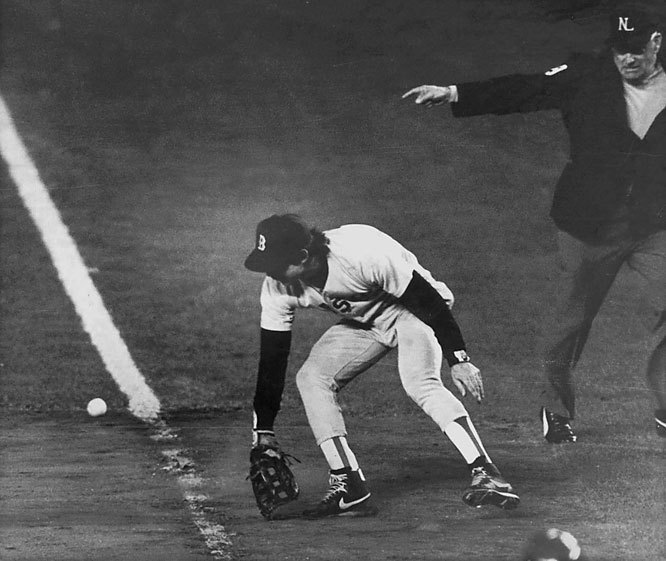One of the topics bandied about in baseball Sabermetric circles lately is the elimination of errors. If you hit the ball and you get on base, you get a hit no matter if it’s a line drive off the wall or a dribbler through the first baseman’s legs. Some reasons for this thinking:
- Errors tell us little about defense. A great defensive shortstop can commit as many errors as a terrible defensive shortstop. If a player has tremendous range and can get to many more balls, he is penalized for his ability by error totals. Ultimate Zone Ratings, which don’t rely on errors, are a much better judge of fielding ability.
- Error calls made by official scorers are deeply subjective and inconsistent. They often are biased based on the needs of the home team.
- A pitcher isn’t charged with unearned runs if a team scores with aid of an error. These are also wildly inconsistent judgements that often obscure a pitcher’s failings. More advanced stats of pitchers have long since replaced ERA as a way to measure their value.
- While getting a hit because a third baseman bobbles a weakly hit ball requires some luck, so does a bloop that lands cleanly just over the head of the shortstop. Luck is a real part of the game already.
The only downside to such a change would be that players would accrue a few more hits each year and that could eventually decide a record or two. But it isn’t as meaningful a difference as stretching a 154-game season to 162 games. Likewise, mounds have been higher and lower depending on which era we’re talking about, which, of course, affected hit totals. And which stadium a player hits in for 81 home games a year causes a variation in how many hits he totals. Baseball has always been inconsistent in its rules, so changing this one won’t be a shocking departure from tradition.•

